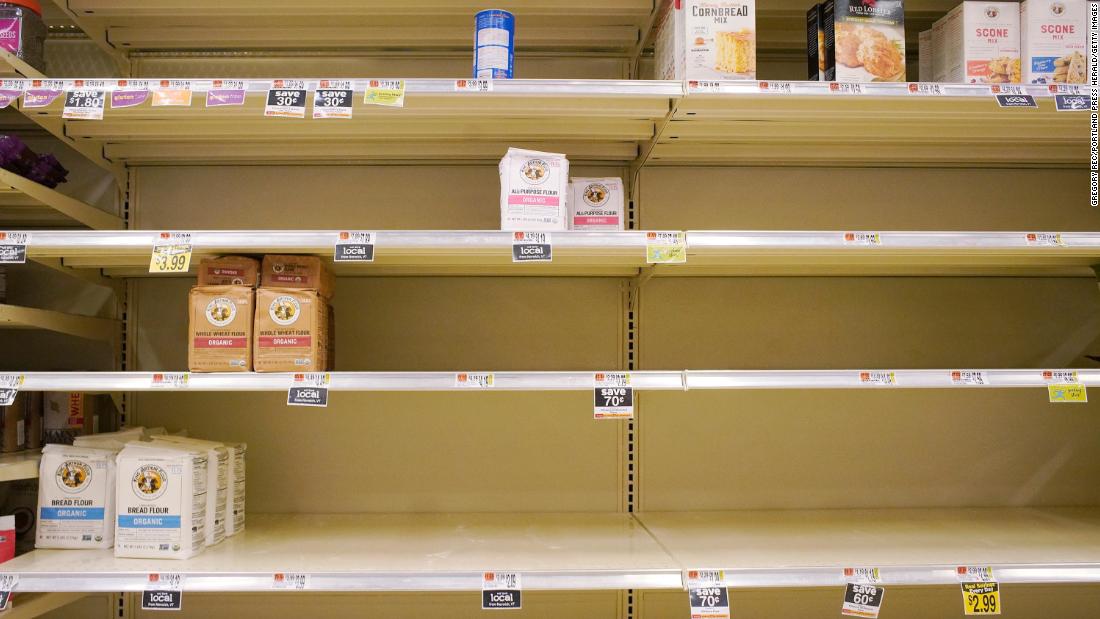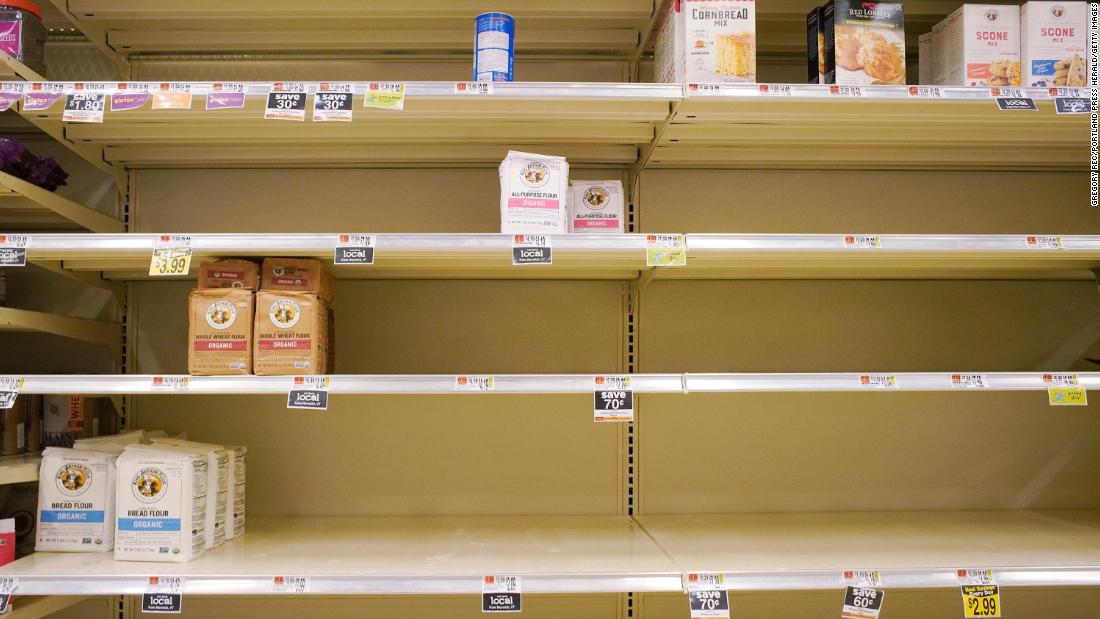[ad_1]

I recently found flour on Etsy, of all places. A local baker in my neighborhood is also packaging and selling the flour he normally gets wholesale. So I asked Carey Underwood, who is director of mission-driven partnerships and programs at King Arthur Flour, if the US has run out of milled grain. She said no.
Our entire conversation, conducted via email, is below.
ZW: Why has there been a run on flour during this Covid-19 lockdown? It can’t just be a bunch of people stuck at home trying to make sourdough.
CU: People are baking — a lot! We conducted some consumer research and found that most people are just baking more than usual since they’re at home, as opposed to pantry-loading. People who were baking monthly are now baking weekly, and people who were baking weekly are baking daily. We expect this increase in baking to continue for the foreseeable future as trends show more in-home eating compared to dining out and people choosing to bake the food staples they cannot find in their grocery stores. People are baking for a lot of reasons including having more time, baking as a family activity, diving into improving their skills, and of course having great bread!
ZW: Has the country essentially run out of flour? I’m assuming that if you and other producers had stores of flour, it would be sent to store shelves. Is that not right?
CU: There is no shortage of wheat. The demand for all signature flours, but especially all-purpose and bread flours, is simply unprecedented and is outpacing the inventory in our warehouses. Through our planning and communication with our mills, we were able to meet the initial spike in demand. However, we anticipate grocery store shoppers will continue to see in-and-out supply as stores receive flour and restock shelves for a while to come. Our supply chain and logistics team is actively working with stores and distributors across the country to get our flour back on the store shelves.
ZW: What’s the holdup in stocking shelves? I see that in your company’s case, you’ve added a new mill and that you’ve switched from train to truck. Is this just logistics or are we essentially waiting for wheat to grow?
CU: The wheat is available, but it must be milled, bagged, and transported to warehouses. These steps simply take time and the flour is selling out again as quickly as it reaches shelves.
ZW: Is the lack of flour something that everyday Americans need to be worried about? We’ve seen a lot of companies warn about the food supply chain. Is flour in that category?
CU: There is no need to worry — fortunately, there is no shortage of wheat. Demand has outpaced the speed at which new product can be created and delivered, even as our mills run at full capacity. In some cases, getting more product onto shelves has been delayed within stores themselves as many are operating with fewer staff and reduced hours.
ZW: How do you think Covid-19 will change the food industry when it comes to essentials like flour? Is this a temporary hiccup or will the supply chain have to change in some way?
CU: We can only provide perspective on how Covid-19 has impacted our supply chain. The demand we have been experiencing is double what we experience during our busiest holiday months (November and December). Our relationships with farmers and mills across the country has allowed us to expand production quickly, and one thing we can take away from this experience is that we all need to continue fostering those relationships so that we can move nimbly when the next unexpected situation occurs.
[ad_2]
Source link

